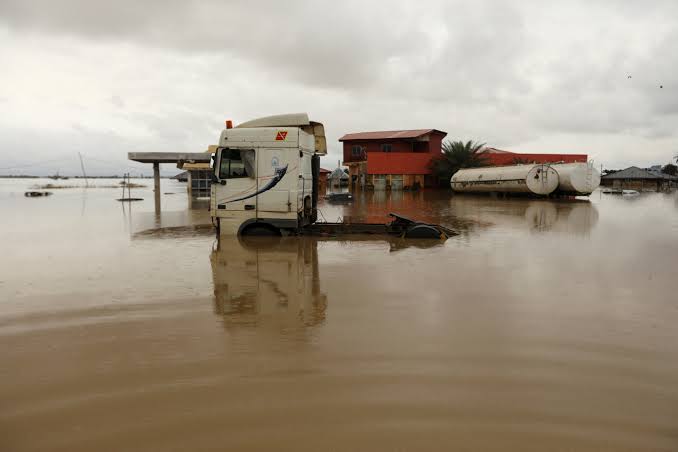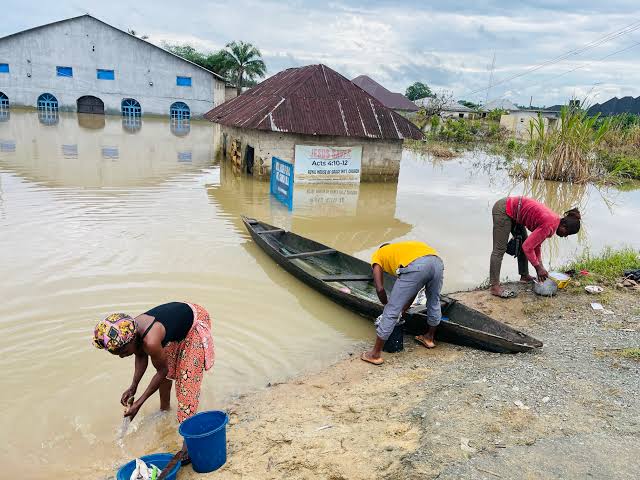
The Director-General of the Nigerian Meteorological Agency (NIMET), Mansur Matazu, has revealed that the country suffered a huge economic loss of $4.6 billion due to the devastating effects of flooding in 2022.
He said the flooding damaged livelihoods, farmlands and infrastructure and had a negative impact on the nation’s Gross Domestic Product (GDP).
Matazu cited a World Bank Survey commissioned by the Ministry of Humanitarian Affairs, which conducted a rapid assessment of the cost implications of the 2022 flood damages.
He said the country was recovering from the disaster and working on lasting solutions to prevent future floods and enhance the agricultural sector in line with the government’s agenda on food security.
He said, “The damage the flood has caused in form of livelihood, farmland, infrastructure has cost the country over $4.6 billion, and that is a significant weight on our GDP.
“Notwithstanding, we are recovering very fast, and the government has already commissioned a presidential committee to come up with lasting solutions to floods and see how we can better utilise the flood waters, which mostly come up from within the country, to improve our agriculture.
READ ALSO: Floods Displace 650,000 Nigerian Children in 7 Years – UNICEF
“The agency is working assiduously to align with the present government’s policy in achieving food security, sustainability, and availability to all Nigerians.”
He also described climate change as a serious challenge in the country, saying that there is local evidence of climate change in Nigeria.
The DG added that the agency would leverage partnerships with relevant stakeholders to come up with localised adaptation and mitigation measures that Nigerians would adopt in providing climate-smart agricultural advisories and services through the agriculture extension agent system.
He said this would help to increase the crop yield and the food security and stability in the country.
Meanwhile, the Executive Secretary of Human and Environmental Development Agenda (HEDA), Sulaimon Arigbabu, blamed the lack of access to climate information services for the losses suffered by farmers caused by flooding.
He recalled that there was a major flooding that happened in Nigeria last year, and another one this year, which added more stress to the food-producing communities.
He said, “We went around many communities and realised that farmers continue to suffer even post-flooding. This is because the kind of support that they will need to be able to lift themselves out of poverty to be able to lift this country out of food insecurity and potential crises may not be reaching them.
“There are many issues, of course, bedevilling agricultural production in Nigeria, but a major one that usually doesn’t get the required attention is the lack of access to climate information services.
“Information also needs to get to the farmer when they are about to start preparation for planting because almost often because of changing rainy patterns, many times farmers go to production before the time, and they lose a lot. And sometimes they don’t get information about what to plant and what not.”








Leave a Reply